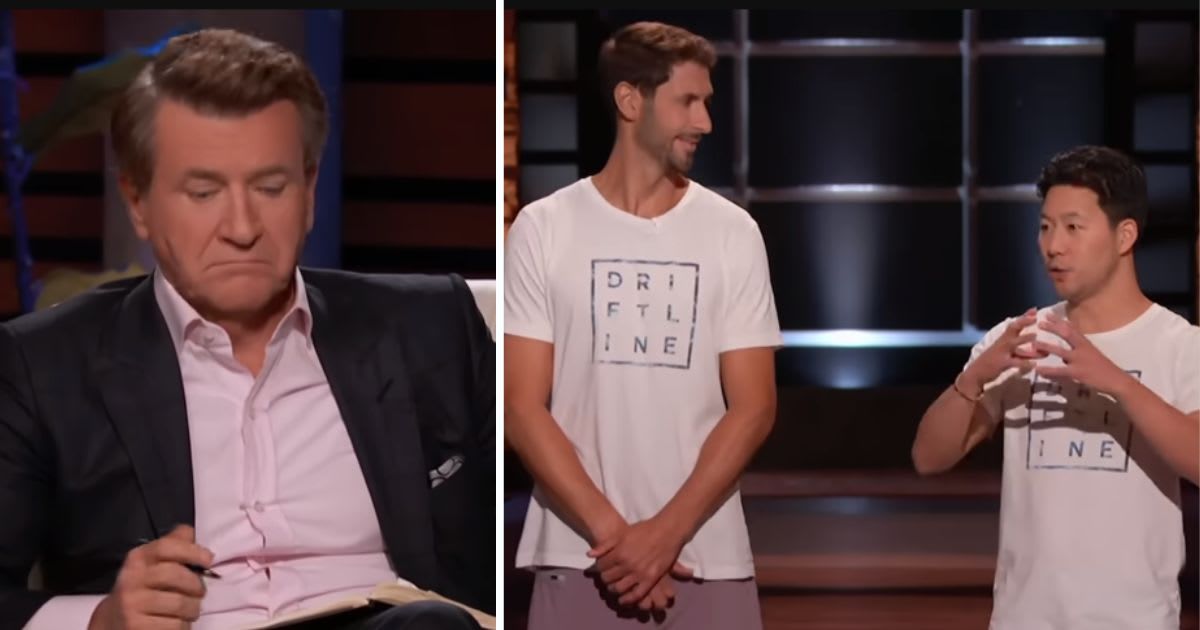'Shark Tank' contestants failed to get a deal just because judges thought they were 'too indecisive'

Entrepreneurs have high hopes of bagging an investment on "Shark Tank" but things don't always work out their way. Among them, those who can make the most of what they get turn the exposure that they gain on the show into a lucrative marketing opportunity. Inventors and business strategists Wes Horbatuck and Greg Orfe profited from their wetline brand, 'Driftline,' pocketing around $125,000 in sales after a soft launch. With a broader vision to conquer the sportswear market, the duo introduced their premium swimwear on "Shark Tank" in 2021, seeking $100,000 for a 10% stake. Their innovative activewear promised to deliver a chaff-free experience for wakeboarders, kayakers, and surfers during extreme water sports. However, even after delivering a dream pitch, the inventor duo failed to impress the sharks.
Horbatuck and Orfe explained that their unique swimwear wasn't available yet in stores, and their profit was based on directly selling the product to the customers through their online presence. "So right now we're actually 99% direct consumer," they said while Herjavec quizzed them about their marketing budget. "Are you spending a lot of money to get people to your site?" to which they replied, "Actually not really, um, this past year we only really spent about $10,000 in marketing." The sharks were then interested to know the cost of production and the final price that determined the profits. "So these retail for $89, it costs $25 to make 33 landed," they explained as the figures astonished the investors.
View this post on Instagram
However, the duo confessed that they went through "many different manufacturers and iterations to get the real material and product." Eventually, the sharks found it difficult to comprehend that the duo who held different educational and professional backgrounds could sustain a successful wetsuit business. "We have this patent that we're uh, hopefully going to get in the next couple of months here, but really what we're building is not just for surfing. We're also expanding into water sports that need specific iterations on the actual product specifically for that sport," the innovators said.
View this post on Instagram
Kevin O'Leary was the first to back out of the swimwear deal after calling it "a very good innovation." He blamed the uncertainty of the marketplace for a decrease in the product's valuation. Lori Greiner followed him, despite praising the creativity of the duo. Daymond John expressed his doubts about the brand's expansion and dropped out, too. "What you've accomplished it's super smart, my problem is I don't know if it can be big enough, you know you can be a two $3 million company, but it's really not a fit for me," Mark Cuban said.
View this post on Instagram
Despite the initial disappointment, 'Driftline' gained online exposure through "Shark Tank," which worked wonders for their online sales. "The reception was exciting," Horbatuck told during an interview with ONE37pm. "The moment people put on the trunks, you could see it in their eyes. The official hurdle was tough. We needed to make this a product for watermen, by watermen." "Within 24 hours, [we] sold out 80% of our inventory," Horbatuck revealed, "which was supposed to last for the whole summer." According to Looper, the company has since launched new products, it has invested in Eco Drifties, unisex shirts, and a plant-based deodorizer spray.




















